HVAC Companies Potton
Best Heating and Cooling Services in Potton
Receive up to 3 HVAC Companies quotes for your project today! Compare profiles, reviews, accreditations, portfolio, etc... and choose the best offer.

Impulse Heating
56 reviewsThe Business Centre, 1000 Chester Road, Unit 10, Birmingham, B37 6AA, GBImpulse Heating Ltd is a family-run business with over 20 years of experience in the heating industry. We are based in the heart of the UK and provide a wide range of heating services to both domestic and commercial clients. Our team of highly skilled engineers is dedicated to providing our customers with the highest quality service at competitive prices. We are committed to providing our customers with a reliable and efficient service, and we are always happy to go the extra mile to ensure that they are satisfied. We offer a 24/7 emergency call-out service, so you can be sure that we are always there when you need us. At Impulse Heating Ltd, we believe that everyone deserves to be warm and comfortable in their home or business. That's why we offer a wide range of heating services, including boiler installations, repairs, and servicing. We also offer a range of other services, such as gas safety checks and power flushing. We are a Gas Safe registered company, so you can be sure that you are in safe hands. We are proud to be a family-run business, and we are committed to providing our customers with the highest level of service. We are always happy to answer any questions you may have, and we are always willing to go the extra mile to ensure that you are satisfied.
- Services
- Why Us?
Get Quote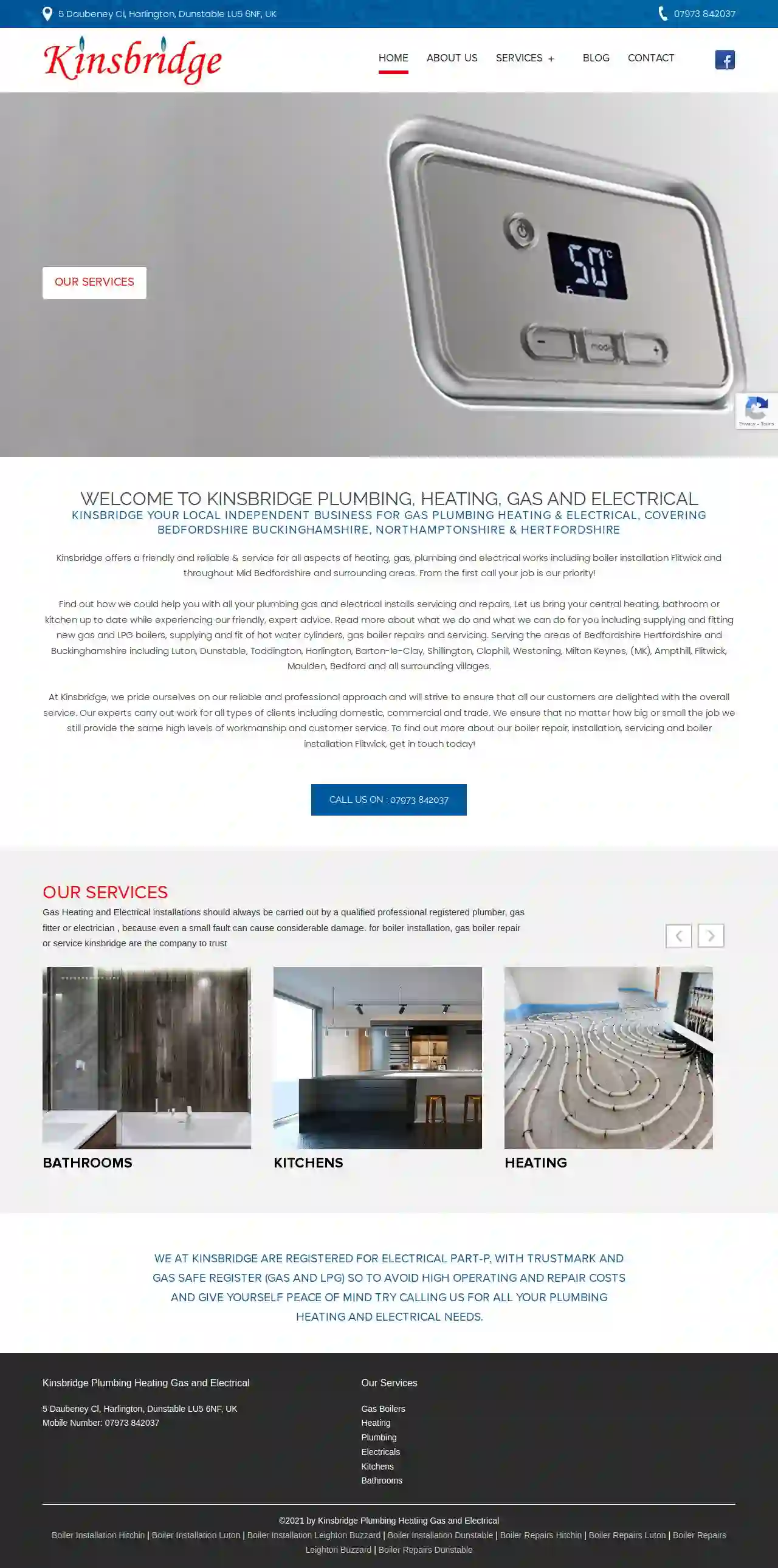
Kinsbridge Plumbing Heating Gas and Electrical
4.927 reviews5 Daubeney Cl, Harlington, LU5 6NF, GBWelcome to Kinsbridge Plumbing, Heating, Gas and Electrical, your local independent business for gas, plumbing, heating & electrical, covering Bedfordshire, Buckinghamshire, Northamptonshire & Hertfordshire. We offer a friendly and reliable service for all aspects of heating, gas, plumbing and electrical works, including boiler installation, Flitwick and throughout Mid Bedfordshire and surrounding areas. Our experts carry out work for all types of clients, including domestic, commercial and trade. We pride ourselves on our reliable and professional approach and strive to ensure that all our customers are delighted with the overall service.
- Services
- Why Us?
- Accreditations
- Gallery
Get Quote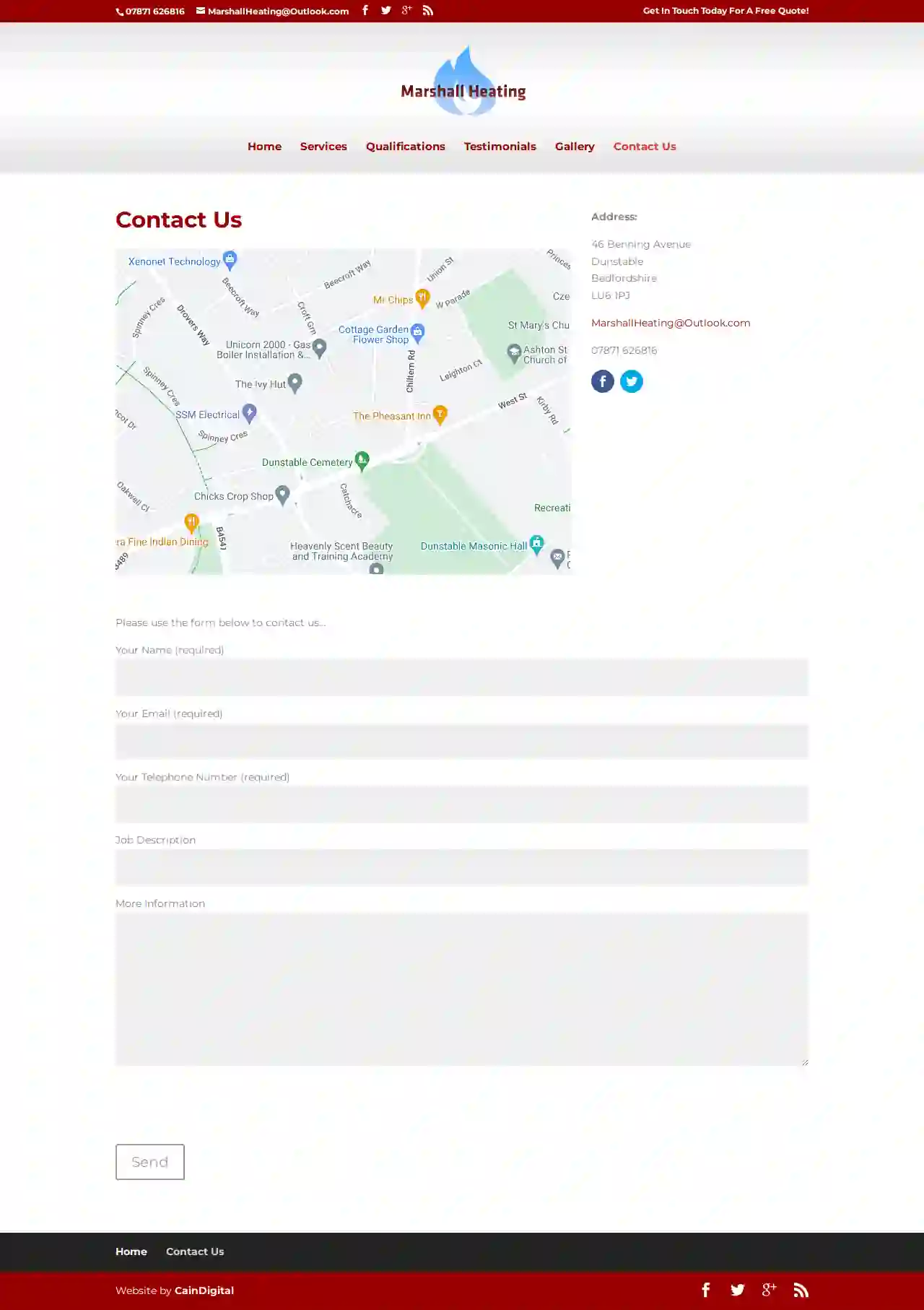
Marshall Heating
46 Benning Avenue, Dunstable, LU6 1PJ, GBMarshall Heating specializes in all aspects of Gas Central Heating & Plumbing. Our company has many years of experience dealing with gas boilers and all other gas appliances and pride ourselves on the standard of work carried out. Customer satisfaction is important to us and a lot of our customers have recommended us to their friends and associates. We can undertake all your plumbing and heating work and as we are Gas Safe registered our service provides the safest solutions and the highest quality standard of work. We consider no job as too big or too small for us, and always aim to exceed your expectations.
- Services
- Why Us?
- Testimonials
- Gallery
Get Quote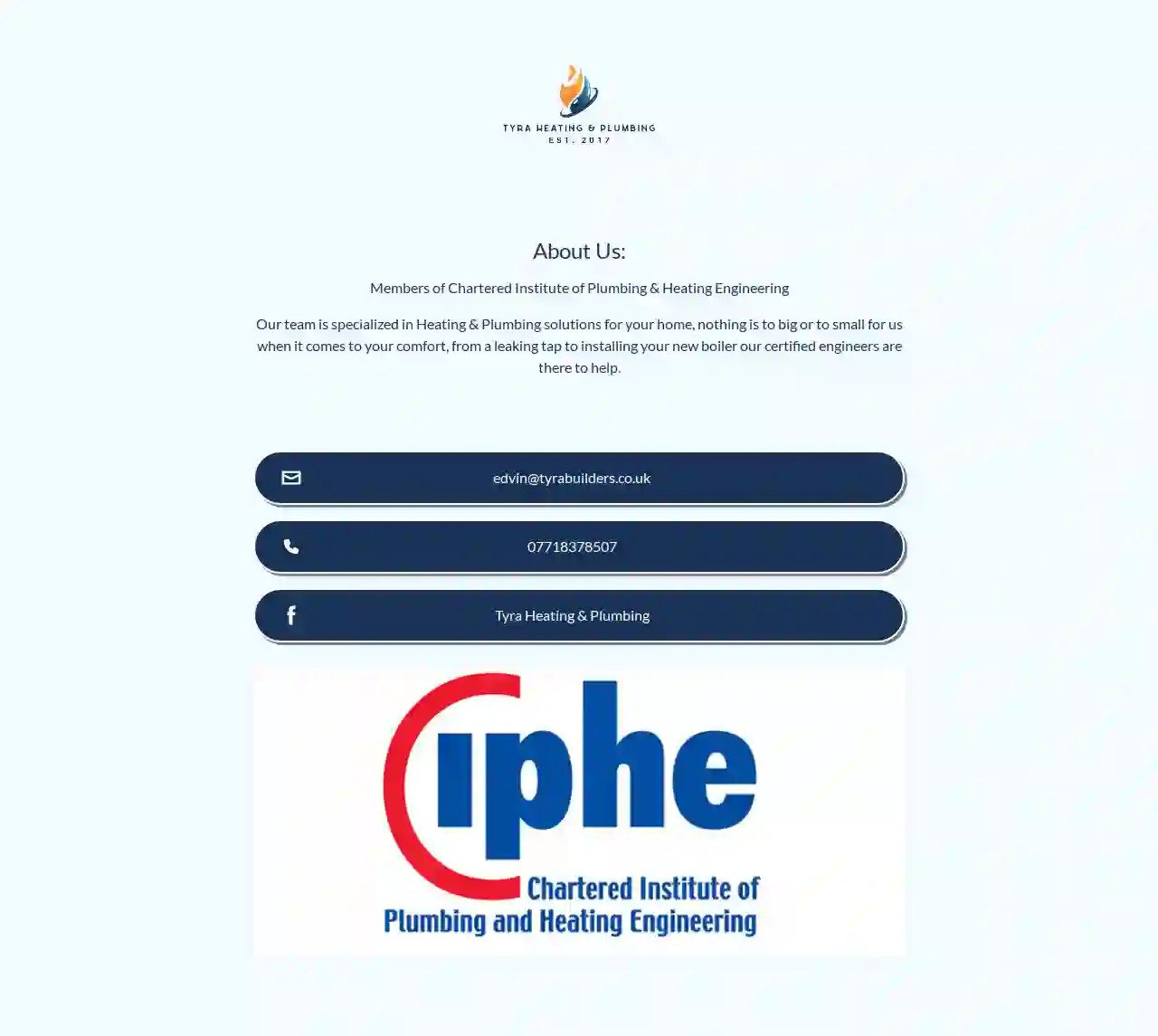
Tyra Heating & Plumbing
Dunstable, GBTyra Heating & Plumbing is a team of certified engineers specializing in heating and plumbing solutions for your home. No job is too big or too small for us, from a leaking tap to installing your new boiler, we are here to help ensure your comfort.
- Services
- Why Us?
- Our Team
- Gallery
Get Quote
Air Conditioning & Smart Energy Solutions Ltd
512 reviewsSparrow Hall Farm, Unit 8B Barleyfields, Edlesborough, LU6 2ES, GBAir Conditioning & Smart Energy Solutions Ltd is an independent company with over 10 years of experience in the Air Conditioning Industry. We are approved installers for leading brands like Fujitsu, Mitsubishi Electric, Daikin, and Toshiba. Our team of F-Gas certified engineers are highly experienced in both commercial and residential installations. We pride ourselves on providing high-quality installations that are independently certified and accredited by Refcom. We also specialize in EV Charger Installations, undertaken by fully qualified electricians specifically trained for this purpose. We offer free surveys and fixed-cost quotations, ensuring transparency and peace of mind for our clients.
- Services
- Why Us?
- Accreditations
- Our Team
- Gallery
Get Quote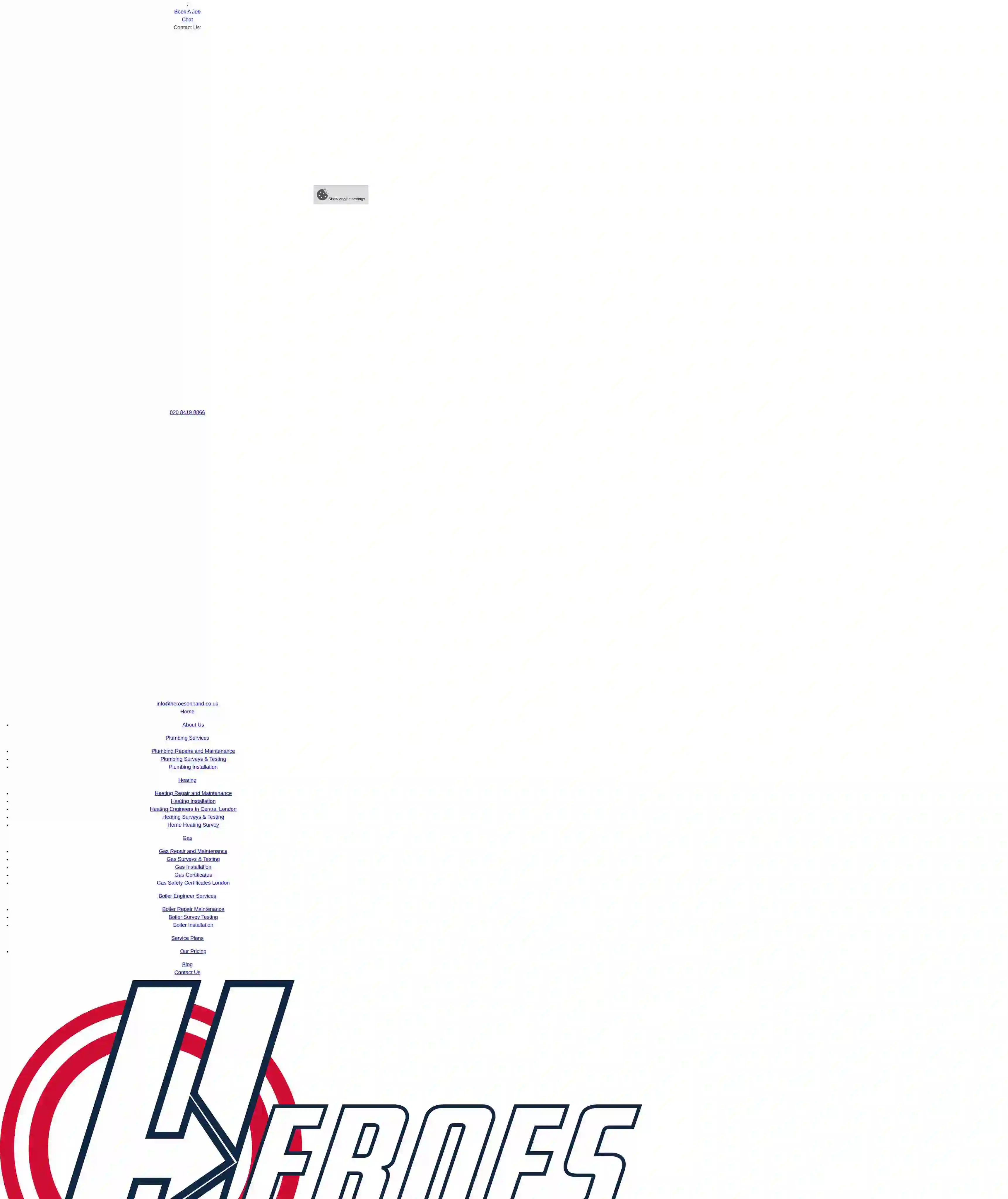
Heroes On Hand
4.935 reviews1st Floor Gallery Court, 28 Arcadia Avenue, 1st Floor Gallery Court 28 Arcadia Avenue, London, N3 2FG, GBWelcome to Heroes on Hand, your trusted partner for all your plumbing, gas, and heating needs in London. We understand the importance of a reliable and efficient heating system for your home and family. That's why we're dedicated to providing top-notch services, ranging from repairs and maintenance to installations of new systems. With over 15 years of experience in the industry, our Gas Safe registered engineers are highly qualified and equipped to handle any challenge. We pride ourselves on using only the highest quality parts and materials, ensuring long-lasting and reliable solutions. At Heroes on Hand, we believe in transparency and honesty. We provide upfront quotes with no hidden fees, so you can be confident in the cost of our services. Our friendly and helpful team is always ready to answer your questions and provide expert advice. We're committed to exceeding your expectations and ensuring your complete satisfaction. Whether you're a homeowner, landlord, or estate agent, we're here to help. Contact us today for reliable and affordable plumbing, gas, and heating solutions you can trust.
- Services
- Why Us?
- Accreditations
- Testimonials
- Gallery
Get Quote
P Wilson Plumbing & Heating
512 reviewsDunstable, GBWe are a growing family-run business, serving our local area of Toddington, Dunstable, Luton, Leighton Buzzard, Milton Keynes and the surrounding area. We have over 20 years experience within the industry and tailor our service to each individual customer. We take pride in our work and our reputation. This is an amazing family-run business. They totally understand how personal a bathroom is and are there on hand to give professional advice as you sort through all the options. The team on site have got it down to a fine art. Their work is of the highest quality and they stick to the schedule. I cannot recommend them highly enough. Absolutely lovely. Anita Brathwaite Honest • Local • Reliable Our mission is simple: to provide high-quality services for our valued clients. Our team goes above and beyond to cater to each project’s specific needs. Through open communication and exceptional service, we hope you’ll find what you’re looking for with our Plumbing and Heating Services. For more information or general inquiries, get in touch today.
- Services
- Why Us?
- Testimonials
- Gallery
Get Quote
Phoenix Heating luton Ltd
4.85 reviewsBlackburn Road, Unit 5 Townsend Centre, Houghton Regis, LU5 5BQ, GBEstablished in 1985, Phoenix Heating (Luton) Ltd is a family-run business catering to all the heating and plumbing requirements of industrial and commercial establishments. Our heating engineers specialise in commercial and industrial heating, including complete boiler or plant room installation, industrial pipe fitting, gas purge and safety checks. Throughout our years of experience, we have developed a great reputation for our work on heating installation projects, providing commercial heating installations that last the test of time. We Look after Schools, Academies and colleges If you are looking for a competent company that can provide you with evidence of the correct training and certificates, we pride ourselves on working with current codification. Safe Guarding IOSH Ipaf £10M Insurance CSCS Gas Safe DBS Water Regulation Schools Hospital Churches Care homes Surgeries Offices Industrial buildings Local authorities approved
- Services
- Why Us?
- Accreditations
- Gallery
Get Quote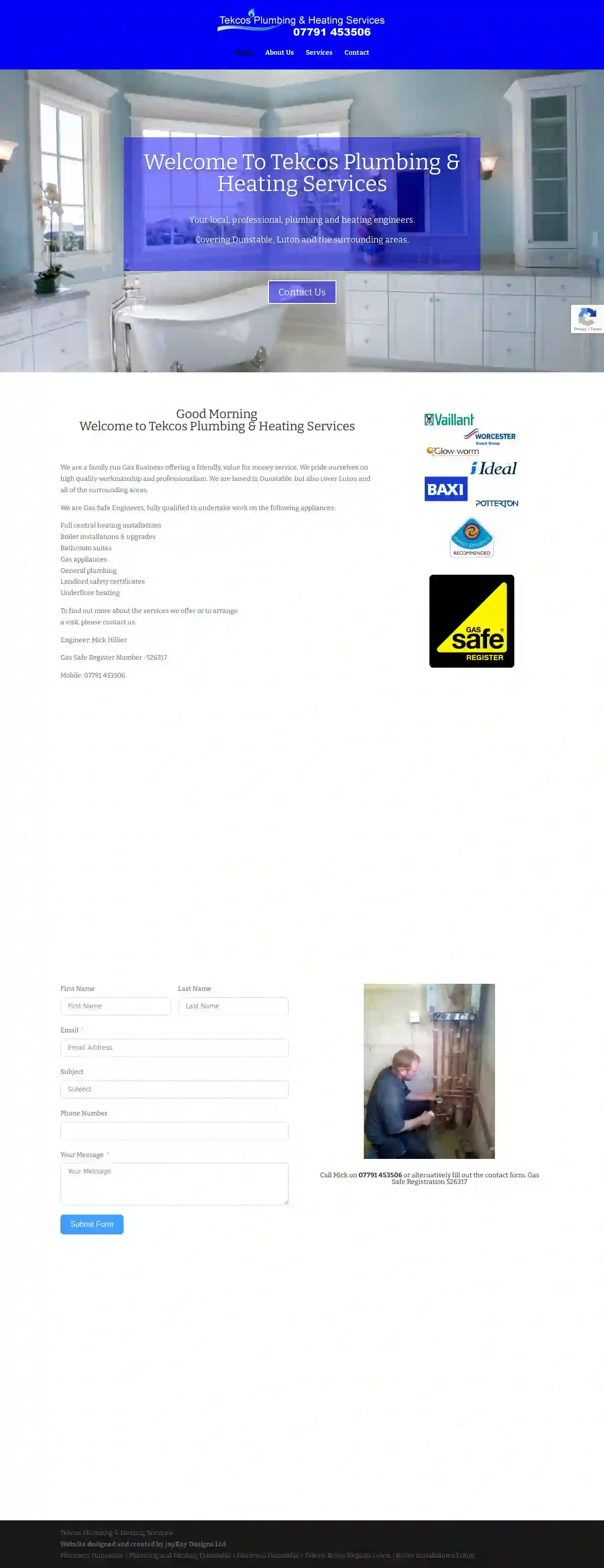
Tekcos (Plumbing & Heating & Electrical) Ltd
51 reviewsDunstable, GBWelcome to Tekcos Plumbing & Heating Services, your local, professional, plumbing and heating engineers. We specialise in boilers and all aspects of domestic plumbing and heating work. Our family run Gas Business offers a friendly, value for money service, with high quality workmanship and professionalism. We are based in Dunstable, but also cover Luton and all of the surrounding areas. We are Gas Safe Engineers, fully qualified to undertake work on the following appliances: full central heating installations, boiler installations & upgrades, bathroom suites, gas appliances, general plumbing, landlord safety certificates, underfloor heating. To find out more about the services we offer or to arrange a visit, please contact us.
- Services
- Why Us?
- Accreditations
- Our Team
- Gallery
Get Quote
The Heating Company
Bedfordshire, GBWelcome to The Heating Company's website. We are a local, family-run company that specialises in boiler installation, repair and servicing. When you choose The Heating Company for your heating needs, you're going with a company with over 20 years of experience and a commitment to a high level of service. Our engineers are Gas Safe registered, which is legally required for anyone working with gas. You can rest assured knowing that we've gone through the training, work experience and assessments needed to demonstrate that we safely work with natural gas. As well as being Gas Safe, we're also members of WRAS (Water Regulations Advisory Scheme) and are fully qualified to carry out solar thermal work. What's more, we are approved by some of the UK's best boiler brands, namely Ideal, Vaillant and Glow-worm. Not only are we experts at installing these brands of boilers, but this status also allows us to offer extended warranties to our customers.
- Services
- Why Us?
- Accreditations
- Our Team
- Testimonials
- Gallery
Get Quote
Over 12,692+ HVAC Businesses onboarded
Our HVAC experts operate in Potton and surroundings!
HVACCompaniesHub has curated and vetted the Best HVAC Businesses arround Potton. Find a top & trustworthy pro today.
Frequently Asked Questions About HVAC Companies
- Frequent Repairs: If your system requires repairs often, it may be more cost-effective to replace it.
- Age of System: HVAC systems typically last 15-20 years. If your system is nearing or beyond that age, it's likely less efficient and more prone to breakdowns.
- Increased Energy Bills: A significant rise in energy bills might mean your system is losing efficiency and needs replacement.
- Uneven Temperatures: If some rooms are too hot or too cold, it could be a sign of an inefficient HVAC system.
- Poor Indoor Air Quality: If you're experiencing allergies, dust, or other indoor air quality issues, a new HVAC system with better filtration could help.
- Strange Noises or Smells: Unusual noises or foul odors emanating from your HVAC system could signal the need for a new HVAC system.
- Split Systems: The most common type, consisting of an outdoor unit (condenser/compressor) and an indoor unit (air handler/furnace).
- Heat Pumps: Provide both heating and cooling by transferring heat between indoor and outdoor air.
- Ductless Mini-Splits: Ideal for homes without existing ductwork or for adding heating and cooling to specific zones.
- Packaged Units: A single unit that contains all the system's components.
- Geothermal Heat Pumps: Use the earth's stable temperature to provide highly efficient heating and cooling.
- Your home's square footage
- Your local climate
- Insulation levels
- Window efficiency
- Number of occupants
What are the signs that I need a new HVAC system?
What is the difference between an AC unit and a heat pump?
What are the different types of HVAC systems?
How do I choose the right size AC unit for my home?
What are the signs that I need a new HVAC system?
- Frequent Repairs: If your system requires repairs often, it may be more cost-effective to replace it.
- Age of System: HVAC systems typically last 15-20 years. If your system is nearing or beyond that age, it's likely less efficient and more prone to breakdowns.
- Increased Energy Bills: A significant rise in energy bills might mean your system is losing efficiency and needs replacement.
- Uneven Temperatures: If some rooms are too hot or too cold, it could be a sign of an inefficient HVAC system.
- Poor Indoor Air Quality: If you're experiencing allergies, dust, or other indoor air quality issues, a new HVAC system with better filtration could help.
- Strange Noises or Smells: Unusual noises or foul odors emanating from your HVAC system could signal a problem that requires a system replacement.
What is the difference between an AC unit and a heat pump?
What are the different types of HVAC systems?
- Split Systems: The most common type, consisting of an outdoor unit (condenser/compressor) and an indoor unit (air handler/furnace).
- Heat Pumps: Provide both heating and cooling by transferring heat between indoor and outdoor air.
- Ductless Mini-Splits: Ideal for homes without existing ductwork or for adding heating and cooling to specific zones.
- Packaged Units: A single unit that contains all the system's components.
- Geothermal Heat Pumps: Use the earth's stable temperature to provide highly efficient heating and cooling.
How do I choose the right size AC unit for my home?
- Your home's square footage
- Your local climate
- Insulation levels
- Window efficiency
- Number of occupants